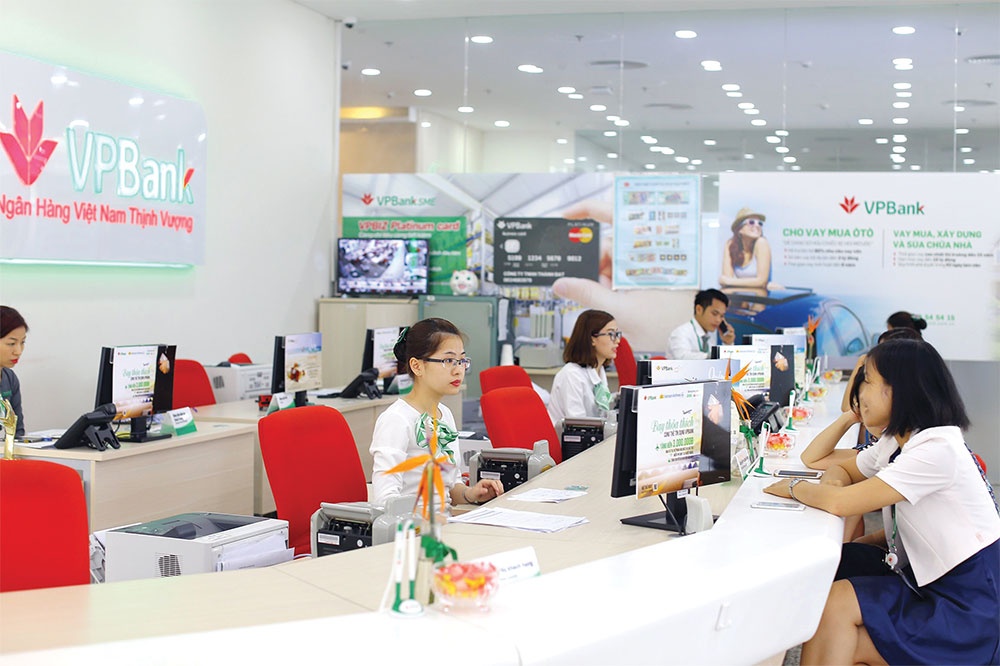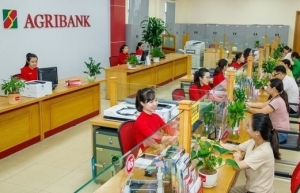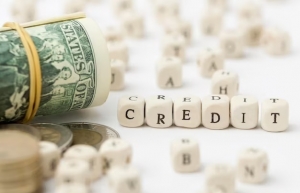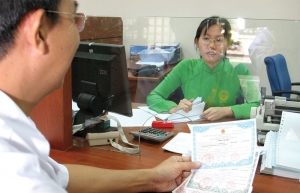Banks address green credit significance
 |
| Financial institutions are focusing more on sustainable credit, photo Dung Minh |
The International Finance Corporation (IFC) last week announced an investment of $150 million in local currency sustainability-linked bonds (SLBs) issued by BIM Land JSC and Thanh Xuan JSC.
The investment includes $100 million by BIM Land and the remainder by Thanh Xuan JSC, both subsidiaries of BIM Group.
As the first local currency SLBs in Vietnam, they aim to boost their businesses, create jobs, and support Vietnam’s low-carbon growth model. The funds will be used for the Thanh Xuan Valley project and water- and energy-saving solutions at BIM Land hotels, potentially reducing 4,000 metric tonnes of CO2 annually, equivalent to emissions from almost 900 petrol-powered vehicles driven for a year.
“Private capital is key to Vietnam’s green transition. The issuance of the first local currency SLBs in the country will signal the viability of innovative green financing instruments as an alternative source of capital for climate-smart projects,” said Thomas Jacobs, IFC country manager for Vietnam, Cambodia, and Laos.
While SLBs are not yet popular in Vietnam, Vietnamese banks are also focusing more on the development of sustainable credit. Earlier in September, VPBank secured a $300 million 7-year bilateral loan commitment from the US International Development Finance Corporation to enhance financial access for smaller businesses, especially those led by women, and support green and sustainable projects in Vietnam.
Prior to VPBank, a number of major Vietnamese banks have received substantial loans from foreign financial institutions due to their active participation in funding green projects.
At the Vietnam Climate Forum held on September 21, Phan Thanh Hai, deputy CEO of BIDV, revealed that the bank has established a steering committee for environmental, governance, and social issues as well as a sustainable finance project management team as part of its institutional development.
“The bank’s business strategy through 2025, with a vision to 2030, includes the development of green credit, positioning the bank as an eco-friendly institution. BIDV will focus on climate adaptation, energy transition, clean transportation, and more,” he said.
As of June 30, BIDV has been involved in nearly 1,780 projects totalling $2.81 billion in green project loans and accounting for 4.1 per cent of its total loans. Notable areas include renewable energy, water resource management, waste management, pollution prevention, and sustainable agriculture.
At MB, after five years of prioritising green credit, this sector now accounts for approximately 8-10 per cent of the bank’s total loans, which is higher than the industry average of 4.2 per cent. By the end of 2022, MB had disbursed over $1.8 billion for green projects, directed towards agricultural and rural development, rooftop solar projects, wind ventures in the Central Highlands and elsewhere, and credit products for individual customers in the agricultural sector.
Foreign credit institutions have made notable advancements in the domain of green credit. In July, Standard Chartered Vietnam and the Ministry of Natural Resources and Environment convened a seminar which recommended the initiation of a voluntary pilot carbon exchange, in preparation for the forthcoming mandatory emissions trading system scheduled for 2028.
“The establishment of voluntary carbon credit exchanges is a strategic move that will support Vietnam in achieving net-zero emissions by 2050. Standard Chartered commits to providing sustainable development products and services, as well as consulting service for businesses during their investment and financial planning,” stated Nguyen Thuy Hanh, deputy general director and head of Corporate, Commercial, and Institutional Banking at Standard Chartered Vietnam.
Deputy Governor of the State Bank of Vietnam Pham Thanh Ha expressed hopes that credit institutions and foreign branches will gain a better understanding of Vietnam’s legal environment. “This will allow them to explore climate investment opportunities through the local financial sector and capital markets more effectively,” he emphasised.
 | Banks join in promoting green credit Commercial banks in Vietnam have been actively offering loans for green projects and expanding green credit through mobilising capital from international credit institutions. |
 | Green credit balance figures on positive trajectory While green credit balances at commercial banks are growing, Vietnam’s legal framework on the issue has yet to be completed, making it difficult for implementation. |
 | New rating agency approval shores up credit confidence Vietnam’s corporate bond market is set for a transformative leap with the entrance of a new credit rating agency, paving the way for renewed confidence and alignment with global standards. |
What the stars mean:
★ Poor ★ ★ Promising ★★★ Good ★★★★ Very good ★★★★★ Exceptional
Related Contents
Latest News
More News
- Private capital funds as cornerstone of IFC plans (February 20, 2026 | 14:38)
- Priorities for building credibility and momentum within Vietnamese IFCs (February 20, 2026 | 14:29)
- How Hong Kong can bridge critical financial centre gaps (February 20, 2026 | 14:22)
- All global experiences useful for Vietnam’s international financial hub (February 20, 2026 | 14:16)
- Raised ties reaffirm strategic trust (February 20, 2026 | 14:06)
- Sustained growth can translate into income gains (February 19, 2026 | 18:55)
- The vision to maintain a stable monetary policy (February 19, 2026 | 08:50)
- Banking sector faces data governance hurdles in AI transition (February 19, 2026 | 08:00)
- AI leading to shift in banking roles (February 18, 2026 | 19:54)
- Digital banking enters season of transformation (February 16, 2026 | 09:00)

 Tag:
Tag:



















 Mobile Version
Mobile Version